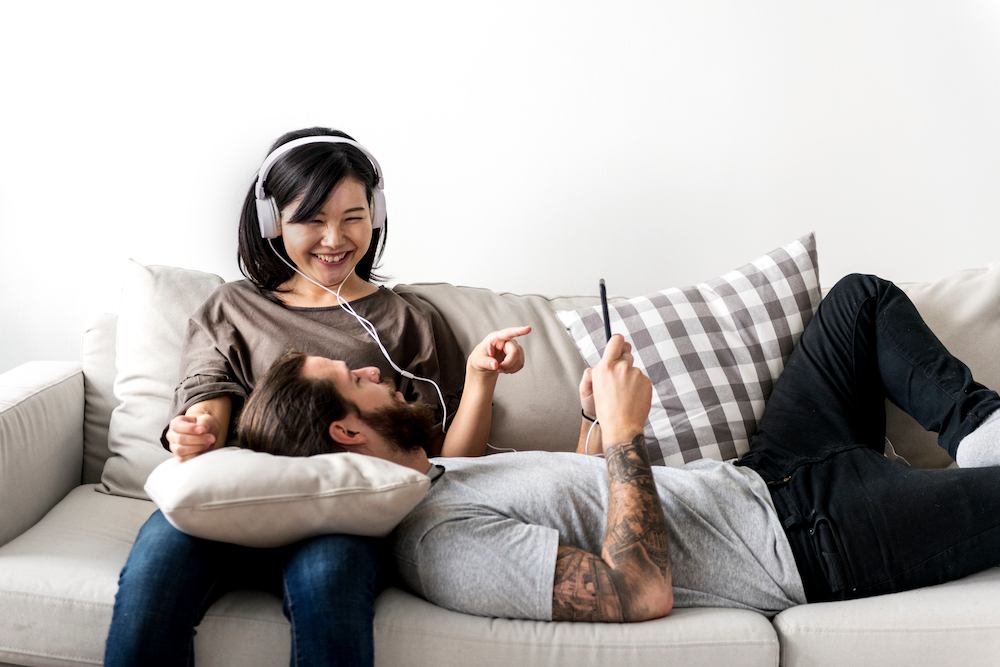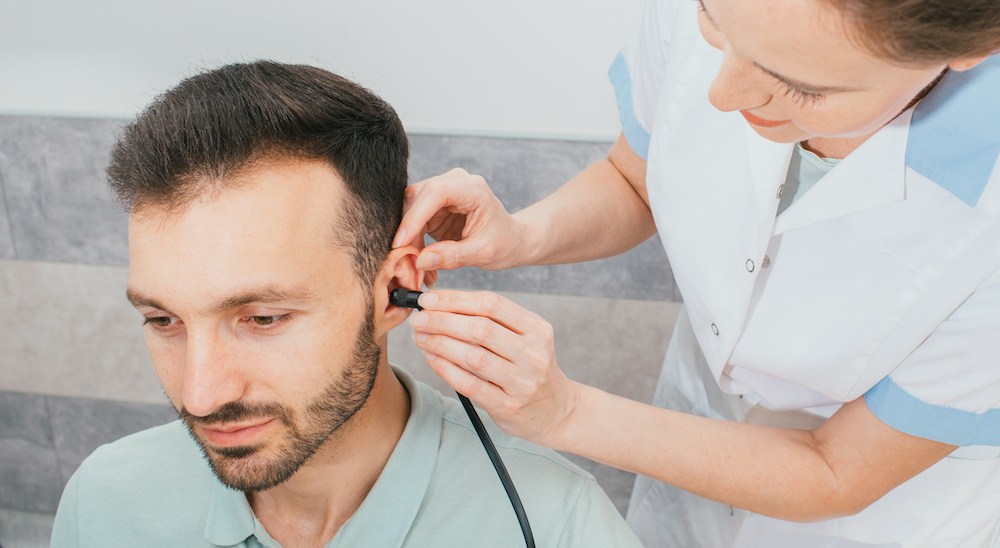The Challenges of Using Hearing Aids in Cold Weather
Winter is on its way, and with it comes a unique set of challenges for

By: admin | January 31, 2022
Are you a music lover? In a world of digital streaming and wireless headphones, you might well be one of the lovers of music out there right now and you wouldn’t be alone. If you love music or you love TV, the chances are you are streaming most of the day.
Listening to your favorite hits while you cook, switching to Pandora while you exercise. You have playlists for everything you do, and your headphones are permanently glued to your head. The problem with all of this wonderful music is that the chances are that you are doing your hearing some damage.
It’s not just music that you have to consider. It’s the lawnmowing you do every week, the concerts you attend and the workplace you’re in. Loud noises and sounds are a part of our lives, but if you’re not protecting your ears while you are in the presence of these sounds, there is a very high chance that you will be doing yourself a disservice.
Your hearing is a vital part of your being and if you are fortunate enough to be born hearing, then you want to keep it in the best condition for as long as possible. Where your ears are concerned, you need to start listening to music and your favorite shows in the safest possible ways. The big issue here is that we usually opt for the choices that leave us bombing music at the highest volume through our earphones – and that’s not good.
You can love all of your favorite artists, but if you are loving them at full volume in your ears with a pair of headphones, then you need to stop and start thinking about safer ways to listen to your music. It takes time for music and loud noises to damage your hearing, and the chances are it won’t just be the music that does it.
The point is that if you are blasting high frequency sounds into your ears at a proximity, the chances are that the damage to your ears will be irreversibly noise related. Hearing loss is not just for the aged, with hearing loss being diagnosed at younger and younger ages.
The good news is that most devices now come with a limit so that you can restrict the maximum sound levels from being slammed into your ears. Turning down the volume should be a priority for you. You also need to take regular breaks from using headphones or earphones and try not to listen to music for more than 40 minutes a day.
Monitoring your volume isn’t all that easy. Most devices don’t monitor their sound levels in decibels, and that can be difficult to then monitor how high your volume is. However, you can monitor the volume simply by using the right apps to do it for you. The noise monitoring help you get is such that your hearing stays protected rather than slammed into.
Many audiologists and hearing specialists will tell you to be wary of listening to music with headphones on, but as long as your music or TV streaming doesn’t exceed 80dB, you should be okay. It’s as loud as the dishwasher gets, so it’s not so loud that it’ll damage your hearing! You can handle up to that level without any hearing damage and that’s the news you need so that you can listen comfortably. You can keep listening to those favorites of yours, but you just need to do it safely so that you don’t end up with hearing issues.
If you’re unsure whether you are listening to a safe listening volume, then you need to speak to your audiologist. Listening to your music or staying too close to speakers at a concert isn’t good for you. You need to book a hearing test and make sure that you are at optimum hearing health and your audiologist is the best person to ask to get through this.
Listening to your music at full volume is going to cause issues over time and you need to be more aware of when your hearing reaches those dangerous levels. The better you know, the better you do. The best thing that you can do right now is call Sommerville Audiology & Hearing Aid Center today at 586-298-3788 right now. We are here to help your hearing – and booking an appointment is your first step to hearing health.

Winter is on its way, and with it comes a unique set of challenges for
By: admin | January 31, 2024

When it comes to hearing aids, there are plenty available on the market,
By: admin | December 28, 2023

Ensuring your overall well-being involves making regular hearing tests a
By: admin | November 25, 2023
